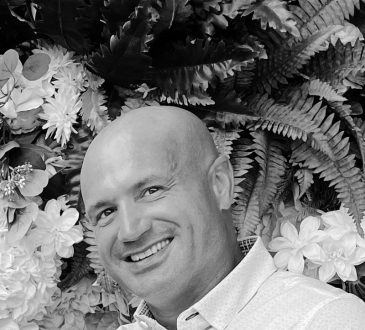Founders Behaving Badly? Why Controversial Leaders Still Matter – and How to Spot the Right Ones

Watching a founder grow a business is like watching someone start a campfire – brilliant returns can be generated when the spark grows into a fire, but dangerous if the fire spirals out of control. From Henry Ford to Steve Jobs, and more recently Elon Musk and Richard White, history’s shown us one thing: founders can build incredible companies. They see around corners. They break things. They get results. But they also come with baggage – big egos, unpredictable behaviour, and at times, a total disregard for the script.
So as headlines swirl around founder antics, institutional investors are asking the right question — not “should we avoid founders?” but “how do we pick the right ones, and spot the trouble early?”
Founders Have Always Driven the Big Wins
Founders have been behind some of the most transformative companies the world’s ever seen. Lee Byung-chul revolutionised mass market electronics manufacturing with Samsung. Eugène Schueller’s hair dye in the early 1900s led to the creation of the beauty industry. Akio Morita put Sony on the global map. And today, we’ve got people like Melanie Perkins (Canva), Toby Lutke (Shopify), and Jensen Huang (Nvidia), each shaping their industry in a way no committee ever could. So yes, founders can be risky. But let’s not forget — they’re also often the reason we get extraordinary upside as investors.
But When They Go Off the Rails…
That upside can come at a cost. Elon Musk is undeniably a genius. But he’s also made life difficult for Tesla investors with impulsive behaviour and erratic public statements. Richard White has delivered phenomenal returns at WiseTech, but not without raising eyebrows over board control and personal entanglements. The real question isn’t “do founders create value?” — they clearly do. It’s “how do we know when a founder is becoming a liability instead of an asset?”
Behavioural Red Flags
From my research into founder-led companies, there are a few common red flags when founders start to tip from “visionary” into “problematic”. Investors need to spot these early:
- Too much power, not enough pushback – If the board can’t say no, there’s a problem.
- No scalable leadership system – Founders who can’t embed their philosophy into a repeatable decision-making framework will become bottlenecks.
- Ego – This applies to all managers, but founders are especially susceptible given the success they experience requires a level of self-confidence and conviction. But when personal ego overrides logic, bad long-term decisions will be made.
- Personal motivation – It is normal for motivation to ebb and flow, but when it becomes apparent a founder is running the business solely for personal gain, then investors need to move on.
One red flag might be manageable. A few combined? That’s when risk starts compounding.
So What Makes a Founder Worth Betting On?
In my book, I studied what sets exceptional management teams apart. These traits hold true, are observable, factual and can be exhibited by any management team, even non-founders. Across industries, stages, and geographies, the best management teams all share three traits:
- Judgement – They make smart calls, especially under pressure. They’re willing to take the unpopular path when it’s the right one.
- Alignment – They’re in it for the long haul. Their incentives match shareholders’, and they exhibit observable traits of psychological ownership.
- Influence – More than just charisma. They attract talent, shape culture, and compel execution. Customers, teams, even media — people follow their lead.
It’s not about being loud or likeable. It’s about being effective where it counts.
Some of the best founder-led businesses don’t make headlines – and that’s a good thing. Take William R. Berkley at W.R. Berkley (NYSE: WRB). Quiet operator, crystal-clear thinker, built a durable global business. Or Tadashi Yanai, who helped build Uniqlo (Fast Retailing (TYO: 9983) into a global force through distinct, principle-driven leadership. Or Mario Rizzante, who, along with his daughter Tatiana, continue expanding Reply SpA (BIT: REY) into a global markets through a decentralised, quietly effective model. These are founders who lead with substance, not noise.
Premium or Discount? Depends on the Founder
So is a founder-led business a premium or a discount? It depends. A great founder with the right guardrails in place can absolutely be a premium worth paying for. They’ll drive long-term value in ways that traditional leadership can’t. But a founder with too much ego, too little accountability, and no willingness to adapt? That’s when you’re not buying vision – you’re buying volatility. And often at a painful price. The key is discernment. You don’t need to avoid founders. You need to know which ones to avoid – and which ones to back. Because when you get it right, a founder isn’t a risk. They’re the edge.
Written by Lawrence Lam.
Have you read?
The World’s Best Medical Schools.
The World’s Best Universities.
The World’s Best International High Schools.
The World’s Best Business Schools.
The World’s Best Fashion Schools.
The World’s Best Hospitality And Hotel Management Schools.
Bring the best of the CEOWORLD magazine's global journalism to audiences in the United States and around the world. - Add CEOWORLD magazine to your Google News feed.
Follow CEOWORLD magazine headlines on: Google News, LinkedIn, Twitter, and Facebook.
Copyright 2025 The CEOWORLD magazine. All rights reserved. This material (and any extract from it) must not be copied, redistributed or placed on any website, without CEOWORLD magazine' prior written consent. For media queries, please contact: info@ceoworld.biz








